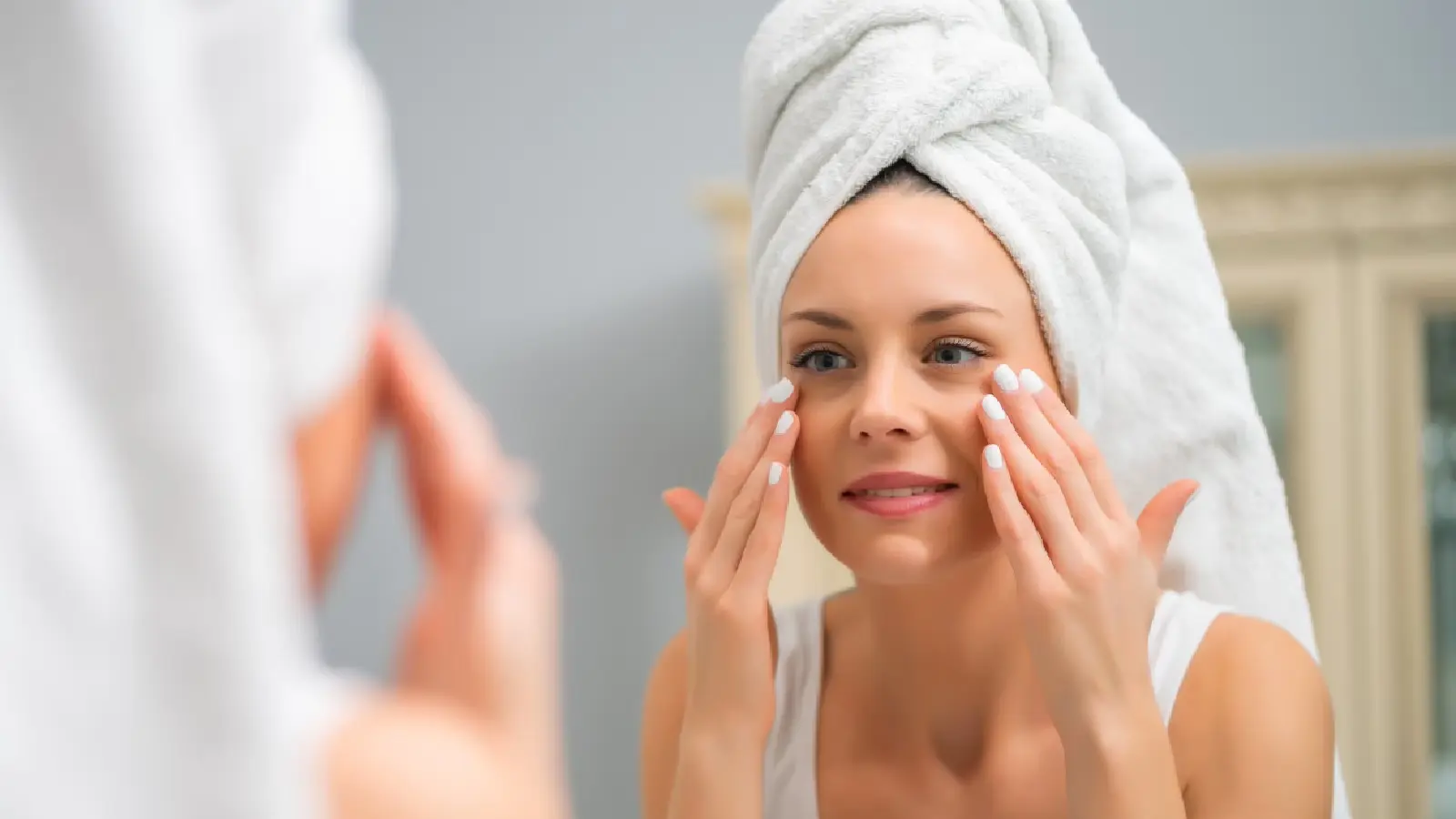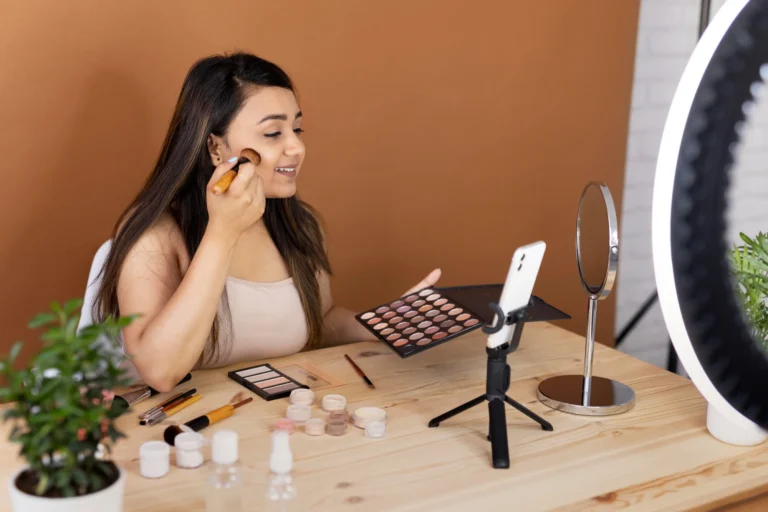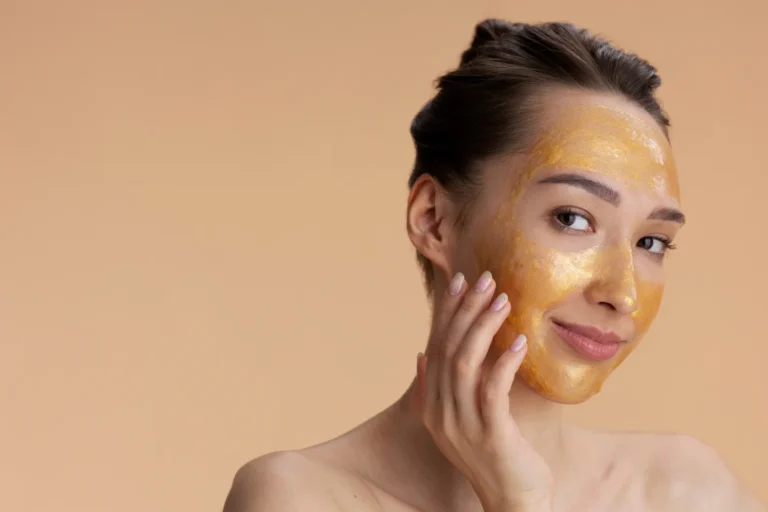Best Skin Care Tips for Glowing Skin: Your Ultimate Guide
Are you tired of dull and lackluster skin? Do you dream of achieving that coveted, natural glow? Well, you’re in the right place! In this comprehensive guide, we’ll dive deep into the world of skincare, revealing the best skin care tips for glowing skin, Skin type, and how to identify your skin type. Say goodbye to lackluster skin and hello to your radiant, beautiful glowing skin!
Before we embark on this illuminating journey to unveil the best skincare tips for glowing skin, let’s first understand what glowing skin is and why it’s so desirable.
What Is Glowing Skin?
Glowing skin is a state where your skin appears healthy, radiant, and luminous. It’s characterized by a smooth texture, an even tone, and a noticeable absence of blemishes or imperfections. Achieving glowing skin involves taking good care of your skin and overall health.
Before Diving into Skin Care Tips for Glowing skin let’s know Your skin type and how to identify your Skin Type.
What Is Your Skin Type and How to Determine It?
Understanding your skin type is the first step to effective skincare. Let’s start by uncovering the characteristics of each skin type:
1. Oily Skin
Is your skin constantly shiny and prone to breakouts?
Oily skin is characterized by overactive sebaceous glands. It tends to have large pores and can be acne-prone. To confirm if you have oily skin, blot your face with a tissue; if it comes away covered in oil, you likely have oily skin.
2. Dry Skin
Does your skin feel tight and flaky?
Dry skin lacks moisture, often leading to a dull complexion and fine lines. If your skin feels tight and has visible flakes, you probably have dry skin.
3. Combination Skin
Is your skin both oily and dry in different areas?
Combination skin can be a bit of both worlds. It tends to be oily in the T-zone (forehead, nose, and chin) and dry or normal on the cheeks. If you experience this contrast, you have combination skin.
4. Sensitive Skin
Does your skin react to products easily with redness or irritation?
Sensitive skin is prone to redness, itchiness, and discomfort when exposed to certain products or environmental factors. If your skin reacts easily, you likely have sensitive skin.
5. Normal Skin
Is your skin well-balanced and free from major concerns?
Normal skin is the lucky few who have balanced moisture, small pores, and minimal sensitivity. If your skin rarely has issues, you likely have normal skin.
How to Care for Oily Skin
Now that you’ve identified your skin type, let’s discuss how to care for each one, starting with oily skin.
- Cleansers with Salicylic Acid: Opt for a cleanser that contains salicylic acid to help control oil and prevent breakouts.
- Regular Exfoliation: Exfoliate 2-3 times a week to unclog pores and remove excess oil.
- Oil-Free Moisturizers: Choose a lightweight, oil-free moisturizer to keep your skin hydrated without adding extra shine.
- Non-Comedogenic Sunscreen: Protect your skin from UV rays with a non-comedogenic sunscreen to prevent clogged pores.
Product Recommendations for Oily Skin
Here are some trusted products to help manage oily skin:
| Product | Brand | User Review |
| Oil-Control Cleanser | Neutrogena | “This cleanser keeps my skin oil-free all day.” |
| Salicylic Acid Serum | The Ordinary | “I’ve seen a noticeable reduction in breakouts.” |
| Matte Finish Sunscreen | La Roche-Posay | “It doesn’t make my skin greasy, even in the sun.” |
Nourishing Dry Skin
Dry skin requires special care to maintain its moisture and radiance.
- Gentle Cleansers: Use a mild, hydrating cleanser that won’t strip your skin of essential oils.
- Limited Exfoliation: Exfoliate only once a week to avoid further dryness.
- Rich Moisturizers: Opt for a heavy, hydrating moisturizer to combat dryness.
- Hydrating Sunscreen: Choose a sunscreen with added moisturizing ingredients.
Product Recommendations for Dry Skin
Consider these reliable products for dry skin from the best skin care brands:
| Product | Brand | User Review |
| Hydrating Cleanser | CeraVe | “Leaves my skin feeling clean and hydrated.” |
| Hyaluronic Acid Serum | L’Oréal | “This serum brought life back to my dry skin.” |
| Moisturizing Cream | Nivea | “I use this cream every day for smooth skin.” |
Balancing Combination Skin
Balancing combination skin can be a challenge, but it’s not impossible.
- Mild Cleansers: Use a gentle, non-stripping cleanser to maintain balance.
- Targeted Exfoliation: Exfoliate the T-zone more and the cheeks less frequently.
- Zone-Specific Moisturizing: Apply a lighter moisturizer to the T-zone and a richer one to the cheeks.
- Broad-Spectrum Sunscreen: Protect both oily and dry areas from UV damage.
Product Recommendations for Combination Skin
Consider these products that work well for combination skin:
| Product | Brand | User Review |
| Balanced Cleanser | Cetaphil | “Helps maintain balance in my combination skin.” |
| Dual Moisturizer | Olay | “Keeps my T-zone and cheeks both happy.” |
| SPF 30 Sunscreen | EltaMD | “No more worrying about different needs.” |
Soothing Sensitive Skin
Sensitive skin demands extra gentle care to avoid irritation and redness.
- Fragrance-Free Cleansers: Opt for fragrance-free, hypoallergenic cleansers to prevent irritation.
- Avoid Exfoliation: Skip exfoliation to avoid aggravating sensitive skin.
- Soothing Moisturizers: Use calming, hydrating moisturizers with minimal ingredients.
- Physical Sunscreen: Choose a sunscreen with zinc oxide or titanium dioxide for gentle protection.
Product Recommendations for Sensitive Skin
Here are some trusted products that cater to sensitive skin:
| Product | Brand | User Review |
| Sensitive Skin Cleanser | Vanicream | “My sensitive skin finally found its match.” |
| Calming Moisturizer | Eucerin | “Keeps my skin comfortable all day long.” |
| Gentle Mineral Sunscreen | La Roche-Posay | “No irritation, even on my sensitive skin.” |
Maintaining Normal Skin
For those with normal skin, maintaining its natural balance is key.
- Balanced Cleansers: Use mild cleansers to keep your skin in harmony.
- Minimal Exfoliation: Gently exfoliate once a week to maintain radiance.
- Lightweight Moisturizers: Opt for light, hydrating moisturizers to preserve your skin’s equilibrium.
- General Sunscreen: Use a broad-spectrum sunscreen to shield your skin from UV damage.
Product Recommendations for Normal Skin
Normal skin deserves products that maintain its balance:
| Product | Brand | User Review |
| Gentle Foaming Cleanser | CeraVe | “Perfect for keeping my skin naturally balanced.” |
| Daily Moisturizer | Aveeno | “My skin feels great with this daily moisturizer.” |
| Broad Spectrum Sunscreen | Neutrogena | “Protects without any fuss – ideal for normal skin.” |
How to get glowing skin: Best skin care tips for glowing skin?
let’s delve into these golden rules of skincare that will help you achieve the radiant skin you’ve always craved.
The Basics: Cleanse, Cleanse, Cleanse!
The foundation of a glowing complexion begins with a clean canvas. Cleansing your face regularly is the first and foremost step in your skincare routine.
When it comes to cleansing, remember these essential tips:
- Use a Gentle Cleanser: Opt for a gentle, sulfate-free cleanser to avoid over-drying your skin.
- Double Cleansing: For thorough cleansing, consider the double cleansing method. Start with an oil-based cleanser to remove makeup and follow with a water-based cleanser.
- Temperature Matters: Use lukewarm water to cleanse your face. Hot water can strip your skin of its natural oils, while cold water might not effectively remove dirt and makeup.
- Cleansing Frequency: Cleanse your face twice a day – once in the morning and once before bedtime.
Hydrate, Hydrate, Hydrate!
Hydration is the key to a radiant complexion. When your skin is well-hydrated, it appears plump and supple.
Here’s how to keep your skin hydrated:
- Drink Plenty of Water: The classic “8×8” rule – aim for eight 8-ounce glasses of water daily.
- Moisturize: Use a high-quality moisturizer suitable for your skin type. It locks in moisture, preventing water loss.
- Hydrating Serums: Consider serums with hyaluronic acid – a moisture-retaining superhero.
- Use a Humidifier: Especially in dry climates or during winter, a humidifier can help maintain the moisture balance in the air.
Protect Your Skin from the Sun
Sun damage is a significant roadblock to glowing skin. Prolonged exposure to harmful UV rays can lead to premature aging, pigmentation issues, and dullness.
To shield your skin from the sun, follow these tips:
- Apply Sunscreen: Every morning, use a broad-spectrum sunscreen with an SPF of at least 30. Reapply throughout the day, especially when outdoors.
- Seek Shade: Avoid direct sun exposure during peak hours (10 a.m. to 4 p.m.).
- Wear Protective Clothing: Hats, sunglasses, and long-sleeved clothing provide an extra layer of defense.
A Balanced Diet: Feed Your Skin
You are what you eat, and your skin is no exception. A well-balanced diet can do wonders for your complexion.
Consider these dietary tips for glowing skin:
- Antioxidant-Rich Foods: Incorporate fruits and vegetables like blueberries, spinach, and kale into your diet. They combat free radicals and promote healthy skin.
- Omega-3 Fatty Acids: Found in salmon, walnuts, and flaxseeds, omega-3 fatty acids support skin health and elasticity.
- Stay Hydrated: Drinking herbal teas and consuming water-rich foods like cucumber and watermelon keeps your skin hydrated from the inside.
- Limit Sugar and Processed Foods: Excess sugar can lead to inflammation and breakouts. Cut back on sugary treats and processed foods.
Regular Exfoliation: A Fresh Start
Exfoliation is the process of removing dead skin cells, making way for the fresh, radiant skin underneath.
When exfoliating, keep these pointers in mind:
- Choose the Right Exfoliant: Mechanical exfoliants, like scrubs, can be harsh on the skin. Opt for chemical exfoliants with ingredients like glycolic acid or salicylic acid for a gentler approach.
- Frequency: Don’t overdo it – 1 to 3 times a week is usually sufficient.
- Avoid Over-Scrubbing: Be gentle, and don’t apply excessive pressure while exfoliating to prevent skin irritation.
- Sun Protection is a Must: Exfoliating makes your skin more vulnerable to sun damage, so apply sunscreen diligently.
Beauty Sleep: Your Skin’s Best Friend
The term “beauty sleep” exists for a reason. During sleep, your body undergoes rejuvenation and repair, which directly impacts your skin’s appearance.
To make the most of your beauty sleep:
- Get 7-9 Hours of Sleep: Aim for a full night’s rest to allow your skin to recover and regenerate.
- Silk Pillowcases: Swap out your cotton pillowcases for silk ones to reduce friction and prevent creases and wrinkles.
- Elevate Your Head: Elevating your head while sleeping can prevent morning puffiness.
- Nighttime Skincare Routine: Apply a nourishing night cream or serum to help your skin recover and replenish.
Stress Less, Glow More
Stress can wreak havoc on your skin, leading to breakouts and a lackluster complexion.
To manage stress and maintain glowing skin:
- Practice Stress-Relief Techniques: Yoga, meditation, and deep breathing exercises can help reduce stress levels.
- Adequate Sleep: Ensure you’re getting enough rest, as lack of sleep can exacerbate stress.
- Limit Caffeine and Alcohol: Both can dehydrate the skin and disrupt sleep patterns. Consume them in moderation.
- Healthy Boundaries: Establishing a work-life balance and setting boundaries can reduce stress in the long run.
Avoid Harsh Products: Gentle is the Way
When it comes to skincare products, harsh ingredients, and overuse can damage your skin’s protective barrier, leaving it prone to issues.
Consider the following when selecting and using skincare products:
- Patch Test: Always patch test a new product to ensure it doesn’t cause irritation or allergic reactions.
- Read Labels: Look for products with ingredients like niacinamide, retinol, and vitamin C, which can boost skin health.
- Limit Active Ingredients: Don’t use too many active ingredients at once, as this can overwhelm your skin.
- Listen to Your Skin: If a product causes redness or discomfort, discontinue use.
The Magic of Facial Massages
Facial massages are a well-kept secret to achieving glowing skin. They boost blood circulation, reduce puffiness, and promote a natural glow.
Incorporate facial massages into your routine with these tips:
- Use a Facial Oil: Apply a lightweight facial oil to allow your fingers to glide smoothly over your skin.
- Upward Strokes: Always massage in an upward and outward motion to prevent sagging.
- Focus on Pressure Points: Gently press on acupressure points to release tension and improve circulation.
- Be Consistent: Regular facial massages can yield noticeable results over time.
Product Recommendations: Your Glow Arsenal
Achieving glowing skin often involves the use of quality skincare products. Here are some recommendations from trusted beauty brands:
| Product | Brand | Key Ingredients | Reviews from Users |
| Hyaluronic Serum | Neutrogena | Hyaluronic Acid | “My skin feels plumper and more radiant.” |
| Vitamin C Serum | La Roche-Posay | Vitamin C, Hyaluronic Acid | “Faded my dark spots and added a healthy glow.” |
| Night Cream | Olay | Niacinamide, Peptides | “My skin wakes up refreshed and radiant.” |
| Exfoliating Toner | The Ordinary | Glycolic Acid, Salicylic Acid | “Smoothed my skin and improved texture.” |
| Sunscreen | EltaMD | Zinc Oxide | “Provides great protection without a white cast.” |
Remember, what works for one person may not work for another, so consider your skin type and concerns when choosing products.
FAQs
1: How can I get rid of dull, lifeless skin?
To revive dull skin, start by exfoliating regularly, using a vitamin C serum, and ensuring you’re well-hydrated.
2: What is the best time to apply a night cream?
Night creams should be applied before bedtime to allow your skin to absorb the nourishing ingredients while you sleep.
2. How can I get rid of dark circles under my eyes?
Dark circles can be caused by various factors, including lack of sleep and genetics. Using an eye cream with ingredients like hyaluronic acid and vitamin K can help reduce their appearance.
4: How long does it take to see results from a skincare routine?
Results vary, but with consistent care, you can start noticing improvements in a few weeks.
5: what are the basic skin care tips?
- Cleanse your face twice daily (morning and night) to remove dirt, oil, and impurities. Use a gentle, sulfate-free cleanser suitable for your skin type.
- Apply a moisturizer that suits your skin type to keep it hydrated and maintain its natural moisture barrier.
- Use a broad-spectrum sunscreen with at least SPF 30 every day, even on cloudy days, to protect your skin from harmful UV rays.
- Avoid using harsh, drying soaps on your face. Opt for a gentle, pH-balanced cleanser instead.
- Exfoliate your skin 1-2 times a week to remove dead skin cells and promote cell turnover. You can use chemical exfoliants (like AHA or BHA) or physical exfoliants (like a scrub), depending on your skin type.
- Consume a balanced diet rich in fruits, vegetables, and whole grains. These foods provide essential nutrients for your skin.
- Drink plenty of water to keep your skin hydrated from within.
- Smoking and excessive alcohol consumption can accelerate the aging process and harm your skin’s health.
- Aim for 7-9 hours of quality sleep each night. It helps your skin repair and regenerate.
- High-stress levels can negatively impact your skin. Practice stress-reduction techniques like meditation, yoga, or deep breathing.
- Your hands carry bacteria, and touching your face can lead to breakouts and skin issues.
- Always remove makeup before going to bed to prevent clogged pores and breakouts.
- Keep your makeup brushes, sponges, and pillowcases clean to avoid the accumulation of bacteria.
- Choose skincare products specifically formulated for your skin type (e.g., oily, dry, sensitive, combination).
- Before using a new skincare product, do a patch test on a small area of your skin to ensure it doesn’t cause irritation or an allergic reaction.
- If you have specific skin concerns or conditions, consult a dermatologist for personalized recommendations.
- If you want to target signs of aging, consider incorporating anti-aging products like retinoids, antioxidants, and peptides into your routine.
Conclusion
Glowing skin is a reflection of your overall health and care. By following these best skin care tips for glowing skin, you’re well on your way to achieving that radiant, beautiful complexion you’ve always desired. Remember, it’s a journey, not a destination, so be patient and consistent in your skincare efforts. Say goodbye to dullness and hello to the glow!
Now, go forth and shine, because you deserve to have skin that radiates with health and vitality.
So, what are you waiting for? Start your journey to glowing skin today!







